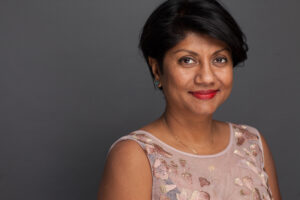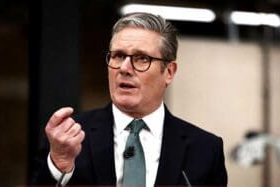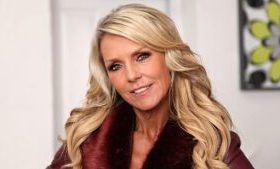
Dr. Malini Saba is an internationally respected entrepreneur, psychologist, and philanthropist whose multifaceted career spans over 30 years and numerous global industries.
As the founder of Saba Group, she has led pioneering ventures across sectors including agriculture, real estate, fintech, commodities, and healthcare. She is also the Chair and CEO of the Saba Family Foundation, a philanthropic organization she funds personally, dedicated to advancing education, healthcare access, and economic empowerment for women and children. Known for her fearless advocacy, Dr. Malini Saba partners with organizations worldwide to drive sustainable change. Her achievements have earned her numerous honors, including the Kalpana Chawla Award for Outstanding Woman of the Year and the Universal Peace Federation’s Ambassador of Peace designation. In addition to her leadership roles, she is a published author, devoted mother, and wellness enthusiast who deeply believes in the power of internal clarity and social responsibility to shape a better world.
What’s something you learned from failure that no classroom or mentor could teach you?
Failure taught me humility in a way no mentor or degree ever could. When you lose everything—reputation, money, relationships—you’re stripped down to your essence. That’s when you find out who you really are. It’s not just about rebuilding—it’s about rediscovering your purpose, your boundaries, and your own inner resilience. The world teaches you to avoid failure; I’ve learned to embrace it as a tool for reinvention.
How has being a mother influenced your leadership style?
Motherhood grounds me. It’s taught me patience, emotional intelligence, and the importance of listening. In business, these qualities are undervalued but vital. I lead with empathy. I look at every team member and ask: what support do they need to thrive? Motherhood made me a better CEO, because it shifted my focus from control to care.
What’s your personal definition of power, and has it evolved over time?
Power, to me, is the ability to remain calm and kind in chaos—and to influence change without dominating others. Earlier in life, I thought power was about control and visibility. Now I know it’s about impact, integrity, and the ability to lift others up without losing yourself.
You work across many sectors. How do you decide what industries to enter?
I look at two things: where there is systemic inefficiency, and where I can make the most long-term impact. I don’t chase trends. I study global patterns—economic shifts, climate influence, supply chains. My decisions are strategic, but they’re also personal. I only step into spaces where I believe my presence can bring lasting value.
What role does spirituality play in your personal and professional life?
Spirituality isn’t a separate part of my life—it’s the lens through which I view everything. My meditation practice keeps me grounded and helps me approach problems with clarity. It teaches me detachment from ego, which is crucial in high-stakes business and philanthropy. When you operate from inner stillness, your external decisions become much more powerful.
If you could redesign the way philanthropy works, what would you change?
I’d eliminate the dependency model. Too many philanthropic systems create temporary relief instead of systemic change. I believe in empowering communities to build their own futures. That means investing in education, training, infrastructure—not just aid. Philanthropy should be a catalyst for independence, not survival.
What’s something about your field that you think outsiders misunderstand?
People often romanticize entrepreneurship or philanthropy. They think it’s glamorous or purely altruistic. The truth is, it’s grueling, emotional, and sometimes deeply isolating. You’re constantly making tough calls that impact real lives. It requires a high tolerance for risk and an even higher commitment to integrity.
What do you believe is the greatest threat to global progress today?
Apathy. We live in a world where information is abundant, but compassion is often scarce. When people stop caring, stop engaging, or stop believing they can make a difference, that’s when progress stalls. My work is about reigniting purpose—because collective action begins with individual conviction.
How do you approach mentorship, especially for women?
I don’t believe in creating clones—I believe in helping women find their own voice and path. I offer strategic advice, sure, but I also challenge them to lead differently, to trust their instincts, and to build their own definition of success. The best mentorship doesn’t give you answers—it expands your questions.
If you could leave a one-sentence message for the next generation of changemakers, what would it be?
Lead with courage, act with compassion, and never underestimate the ripple effect of your integrity.
Read more:
An In Depth Conversation with Dr. Malini Saba On Leading With Impact






